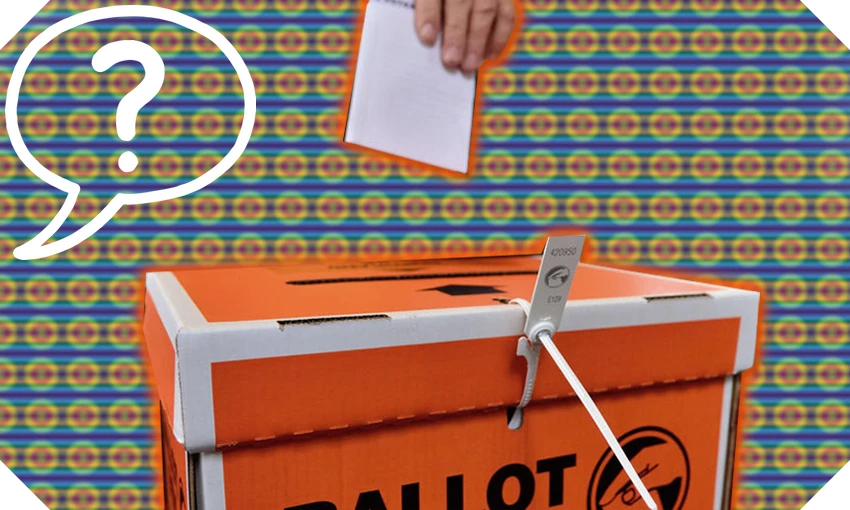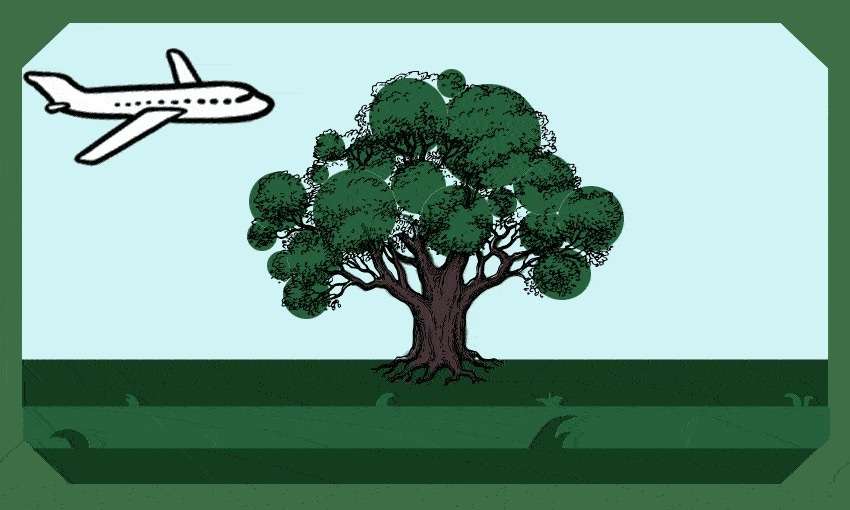Make it 16 needs parliament to make it to 75%
A supreme court declaration on the voting age is a moral and tangible victory for Make it 16 but changing electoral law requires 75% of MPs to vote in favour and that looks unlikely
Mōrena and welcome to The Bulletin for Tuesday, November 22, by Anna Rawhiti-Connell. Presented in partnership with Z Energy.
In today’s edition: Ukraine's president invited to address parliament; Census undercount raises question of additional Māori seat; Te Pūkenga advertising for eight new executive directors; but first, a breakdown of yesterday’s Supreme Court judgment and what it means for lowering the voting age
The Supreme Court made a declaration that the current voting age of 18 is inconsistent with the Bill of Rights.
What the Supreme Court actually said
Contrary to a few, perhaps forgivably jubilant, takes I saw yesterday, the Supreme Court did not make a judgment in favour of 16 and 17-year-olds having the right to vote. What it did do was grant a declaration that the provisions of the Electoral Act and the Local Electoral Act which provide for a minimum voting age of 18 years are inconsistent with the right in s19 of the Bill of Rights to be free from discrimination on the basis of age. In a slightly meta, Inception-style scenario –I’ve also expanded on today’s Bulletin on The Spinoff this morning. Stay right here for the watercooler version, head here for more detail, or do both for extra credit.
Legislation to be drafted, house to vote
Any declaration of inconsistency with the Bill of Rights must be responded to within six months in accordance with a new law passed in August. In response to yesterday’s ruling, prime minister Jacinda Ardern said legislation will be drafted for making the voting age 16 and taken to the house for a vote. The Herald’s Thomas Coughlan (paywalled) breaks down how we’ve arrived at this new juncture of responding to declarations of inconsistency and also covers the anomaly that means we could have a scenario where 16 and 17-year-olds can vote in their local body elections, but not in the general elections.
What political impact might lowering the age have?
There was a question at yesterday’s post-cabinet press conference that suggested there was “overwhelming evidence” that lowering the voting age favours the left. Based on the first ever review of studies across a range of countries that have lowered the voting age published in Oxford University’s Parliamentary Affairs journal in 2021, “young people tend to support centre-left or green parties in somewhat higher numbers than adults, but this is by no means an iron law”. Stuff’s Luke Malpass has done some “quick, back-of-the-envelope polling analysis” on what might happen if the age were lowered.
What are the odds of lowering the voting age to 16 in New Zealand?
Not great. The determination as to how MPs might vote is still up in the air. It could be a conscience vote but that is up to the Speaker. The National and Act parties aren’t supportive and their votes would be required to achieve a supermajority. National party justice spokesman Paul Goldsmith said allowing 16 and 17-year-olds to vote was an issue for parliament to decide, but opposed the idea. "We disagree with the conclusion that the voting age that has been in place for more than a century is unjustified," he said. The voting age of 18 has actually not been in place for a century, it was set at 18 in 1974. When I think about what I was doing at 16, it’s probably a 50/50 call on whether I should have been voting at the time but I was most definitely not getting organised enough to take things to the Supreme Court.
Abandon the commute; help save the planet
The pandemic revealed just how much of our business travel could be done without. With an Auckland-Wellington round trip producing 150kg of carbon, many businesses are cutting their footprints just by reducing business travel deemed unnecessary. Kiwibank is one of those businesses creating long-term change by reducing work travel, improving their work from home policies and utilising the growing tech that allows us to gather digitally. Good for the planet, the pocket and their people – read more about how reducing business travel is making an impact, on The Spinoff now (sponsored).
Ukraine's president invited to address parliament
As RNZ’s Katie Scotcher reports this morning, Ukraine's president, Volodymyr Zelensky has been invited to address parliament. RNZ understands arrangements are being made for Zelensky to speak via video link to MPs. He would be the second head of a foreign government to address New Zealand's parliament. The first was Australian prime minister Julia Gillard in 2011. A date for Zelensky's address has not yet been set, but it is understood it won't be this week. It could happen before parliament adjourns for the summer.
Census undercount raises question of additional Māori seat
In other electorally consequential news, two botched censuses have called into question whether there should be an additional Māori seat in parliament. As RNZ’s Phil Pennington writes: “An undercount of Māori by almost 50,000 in the census has raised questions if they should already have another seat in parliament. The census organiser Stats NZ is saying ‘maybe’.” Andrew Sporle, an associate professor of statistics at Auckland University said "To say 'maybe' for something that is constitutionally important, especially when the election's looking pretty tight, is not good enough.”
Te Pūkenga advertising for eight new executive directors
As Stuff’s Lee Kenny reports, Te Pūkenga, the national polytech, is advertising for eight new executive directors, who will each earn in excess of $200k a year, while also looking to cut its budget by $35m and not ruling out redundancies. National’s tertiary education spokeswoman, Penny Simmonds actually raised this in the house last week where she sought leave to table the Seek advertisements for the roles. The Speaker, assuming they were publicly available, said no, but as Simmonds pointed out the ads were public but had been taken down so were no longer technically publicly available. An objection was raised to them being tabled so leave wasn’t granted. The ads are now back up.
Click and collect
Government announces more sanctions targeting Russia and its allies, Putin’s daughters on the list.
Christopher Luxon is not ruling out working with New Zealand First
Newsroom’s Marc Daalder with a good explainer on New Zealand’s current hate speech laws and what’s being proposed
Scientists are stunned by what they've learnt about the ferocity of the Tonga volcanic eruption in January
New meteorite hunt alert - this time in Northland
Got some feedback about The Bulletin, or anything in the news? Get in touch with me at thebulletin@thespinoff.co.nz.
If you liked what you read today, share The Bulletin with friends, family and colleagues.
The cost to the public of sending non-emergency surgeries to the private system has nearly doubled over the past five years. Data journalist Emma Vitz and reporter Shanti Mathias look into why. Toby Manhire talks with New Zealander Hamish McKenzie, who before he founded Substack worked for Twitter owner Elon Musk at Tesla. A preemptive eulogy for Twitter dot com from yours truly. Matthew McAuley profiles local skate legend Chey Ataria. And in a excerpt from Needles and Plastic: Flying Nun Records 1981 – 1988, Matthew Goody explores Auckland’s underground through the adventurous all-female group Marie And The Atom.
Nike and a dog named Pickles
In a delightful combo of feature and sports story, I can recommend this massive yarn from the Washington Post, published on Stuff, about the football World Cup trophy being stolen, and then found by a dog named Pickles.
“Designed in 1929 by sculptor Abel Lafleur and made of gold-plated silver and lapis lazuli, it depicted the ancient Greek goddess of victory, Nike. But then someone nicked Nike.”











